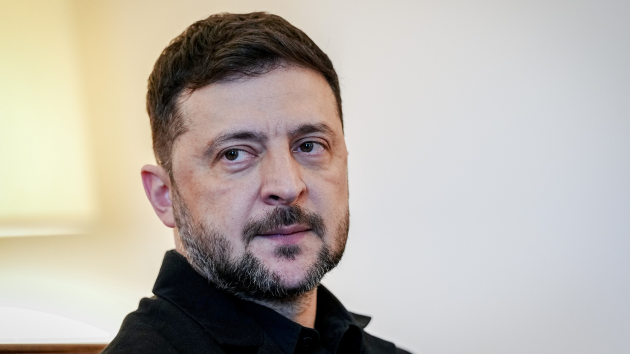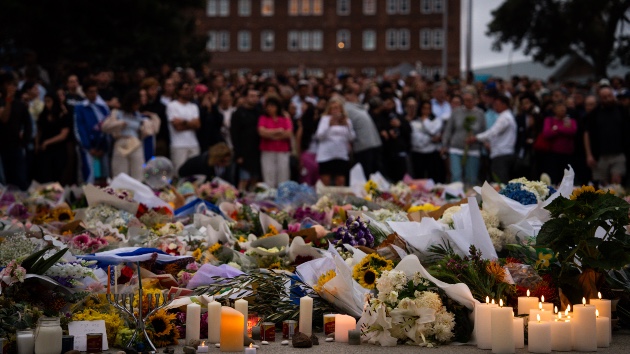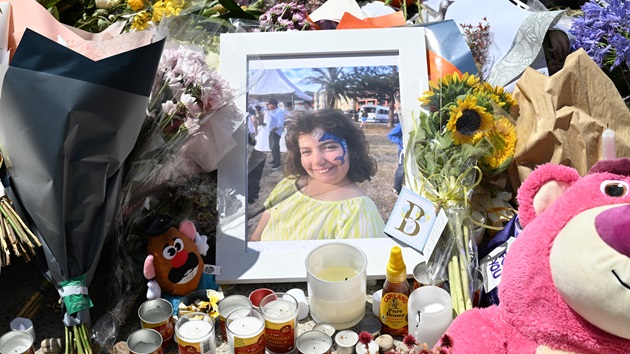Sudan’s RSF chief says he’s open to cease-fire talks, as conflict grinds on
Written by ABC Audio All Rights Reserved on January 4, 2024

(LONDON) — Sudan’s Rapid Support Forces Chief Mohammed Hamdan Dagalo said the RSF is open to an “immediate” and “unconditional” cease-fire with the Sudanese army, as the conflict in Sudan grinds on into its ninth month.
The RSF is “committed to ending [the] war,” Dagalo, who is known as Hamedti, said, calling the ongoing conflict the “worst crisis” in the northeast African nation’s history.
“We are now extending our hands for peace,” said Dagalo on Tuesday, speaking at a joint press conference in Addis Ababa with former Sudanese Prime Minister Abdallah Hamdok, as the RSF signed the Addis Ababa Declaration with the Taqadum civilian coalition — the paramilitary group’s clearest commitment to ending the conflict thus far.
Dagalo invited the Sudanese Army to do the same. The warring generals have reportedly not met face-to-face since the start of the conflict in April.
“In the declaration we agreed on the one army. There is no way Sudan would, I think, stay as a peaceful country if we have this multiplicity of armies,” Dagalo said.
The RSF chief is on the last stop of his regional tour, his first trip outside Sudan since the onset of the conflict. As diplomatic efforts to forge a cease-fire and a meeting between the waring generals continue, Dagalo on Wednesday held talks with Kenyan President William Ruto in Nairobi. Dagalo also visited Djibouti, Ethiopia and Uganda.
Fighting erupted in Sudan on April 15, a culmination of weeks of tensions linked to a planned transition to civilian rule.
Gen. Abdel-Fattah Burhan, commander of the Sudanese Armed Forces, and Dagalo, who were once allies who jointly orchestrated a military coup in 2021, are now engaged in a vicious power struggle.
Artillery fire between the RSF and SAF is reported to have intensified in Sudan’s capital, Khartoum, in recent days.
Millions have been caught in the crossfire. The U.N. Office for the Coordination of Humanitarian Affairs, or OCHA, said more than 7.2 million people have been displaced within and outside Sudan’s borders.
In Sudan’s Wad Madani and surrounding areas in Al Jazirah state, over 500,000 people have been displaced in recent clashes between the RSF and SAF.
In eastern Chad, testimonies from some of the now half a million Sudanese refugees who fled to eastern Chad tell “unspeakable horrors,” Stephen Cornish, MSF director general, said in statement sent to ABC News.
“The situation is close to catastrophic. From insufficient access to food, water, and shelter to concerns about proper hygiene, it’s a daily struggle for those who have left almost everything behind,” said Cornish. “What I have seen in Chad during this emergency has shocked me to my core.”
The MSF says they have seen ”high incidence” of malnutrition, and high cases of diarrhea and malaria. In eastern Chad’s Adré transit camp, an estimated 150,000 people are living through precarious’ conditions.
“The people suffering from this crisis are predominantly women and children, and many are also victims of large-scale violence … Now relocated to the desert, these refugees cannot face this ordeal alone,” Cornish said.
In a statement on Jan. 1, Sudan’s National Day, the U.S. State Department said Sudan is suffering from “one of the world’s largest humanitarian and displacement crises.” The conflict was “needless,” U.S. officials said.
“This conflict has resulted in war crimes, crimes against humanity, ethnic cleansing, grave food insecurity, widespread displacement, and a collapsing healthcare system,” the statement said. “It has also dangerously deepened divisions in Sudan along ethnic, tribal, and regional lines.”
“The United States continues to stand with the people of Sudan and will work to end the conflict so that in the coming year, the Sudanese people can begin to realize the peace, security, and prosperity they deserve,” it continued.
Copyright © 2024, ABC Audio. All rights reserved.

 KVSP
KVSP 



![DeSantis confronted by supporter: ‘Why haven’t you gone directly after [Trump?]’ DeSantis confronted by supporter: ‘Why haven’t you gone directly after [Trump?]’](https://s3.amazonaws.com/syndication.abcaudio.com/files/2024-01-04/GETTY_1424_RonDesantisSpeaking.jpg)

